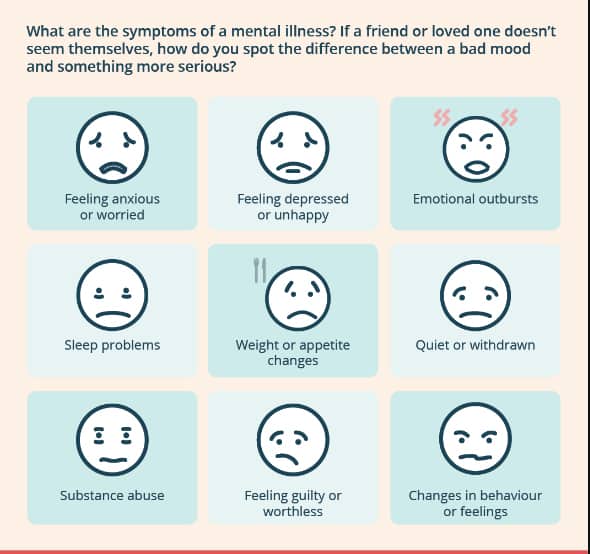Your Mental Health Matters— During and After Your Transition

Mental health issues have long been associated with shame, failure, and weakness, but this stigma has changed drastically over the past decade. Today, it’s normal to have an open dialog about mental health— if you haven’t experienced it yourself, you probably know someone who has. One in four people suffer from a mental health issue, and the percentage is significantly higher for incarcerated individuals. Any period behind bars can have lasting effects on your health and wellness, take the time to address during your transition to the community.
Most reentrants make the mistake of putting their mental health on the back burner to tackle more common, immediate needs such as housing and employment. Managing your mental health is just as critical to your success. Luckily, there are many treatment options, support groups, and advocacy programs available to help you.
What is mental health?
Mental health is defined as the overall wellness of how you think, regulate your feelings, and behave. Emotions come and go, and it’s common to experience irregular thoughts and mood disturbances. In contrast, a mental health illness is commonly associated with patterns or changes in thinking and behavior that result in the inability to function.
Take inventory of your current state, and develop a plan
Whether you entered your sentence with a diagnosed illness or feel as though you have a firm grasp on your mental health, it’s important to be able to connect to your feelings. Be proactive when it comes to your mental health—take the time recognize and identify emotional and physical triggers that may put you in danger.
Look back on situations that caused distress or led to past criminal thinking and behavior. Use this information to develop a plan for what you will do and who will support you should these triggers arise. If you need help creating a crisis plan, visit the Get Started page, and click the “Get Free Resources” button on the left side of the page.

Understand when to get help
Depending on the type of disorder, signs and symptoms may vary. It’s important to know what to look for and when it’s time to seek help.
Talk to a professional if you or someone you know experiences the following warning signs:
- Notable changes in personality, eating, or sleeping patterns
- Anger, mood swings, or emotional outbursts
- Increased anxiety
- Prolonged depression
- Feeling withdrawn or disconnected from your relationships and normal activities
Seek help immediately if you or someone you know experiences more severe warning signs including:
- Anger and hostility accompanied by violent behavior
- Drug or alcohol use to numb or self-medicate
- Thoughts or statements about suicide or harming others
- Grandiose thinking and behavior
- Social isolation and paranoia
Find a mental health professional in your area
Mental health providers accept most health insurance plans, and some communities offer free or low-cost services. If you don’t have insurance, check with your local hospital or a community shelter. Self-help groups are also available to individuals who may not need professional help, but are looking for extra support. Visit Mental Health America, a community-based nonprofit to find meetings and peer support near you.
Summary
Your mental health should not be taken lightly, and there is no single test to tell whether you or someone you know has an illness. Get help early to prevent issues from getting worse.Often, the people around you will notice behavioral changes that may be warning signs something is going on. Although the topic may be uncomfortable or hard to discuss, try to be open-minded about your friends and loved ones feedback.


